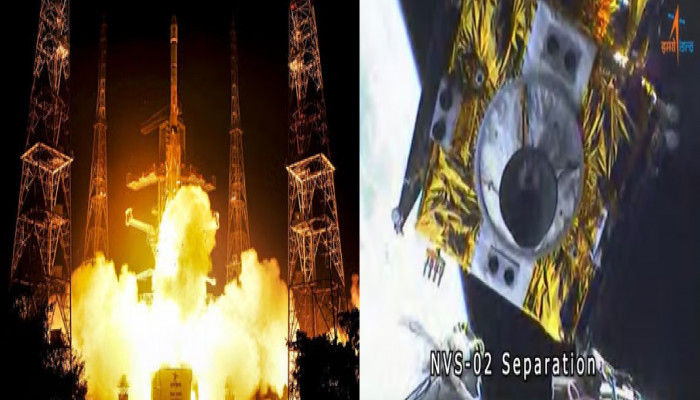ISRO's NVS-02 navigation satellite faces setback as thrusters fail to activate
- In Reports
- 12:05 PM, Feb 03, 2025
- Myind Staff
The Indian Space Research Organisation (ISRO) faced a challenge while trying to position the NVS-02 navigation satellite in its intended orbit. Officials said on Sunday that the satellite's thrusters did not ignite as expected, preventing the planned orbit adjustment.
In a mission update, the agency stated that "the orbit raising operations towards positioning the satellite to the designated orbital slot could not be carried out as the valves for admitting the oxidiser to fire the thrusters for orbit raising did not open." It also stated that alternate mission strategies for using the satellite for elliptical orbit navigation are being developed. As part of Isro's 100th launch from the Sriharikota spaceport, the NVS-02 satellite, an essential part of India's own space-based navigation system, Navigation with Indian Constellation (NavIC), was launched on January 29 aboard the GSLV-Mk 2 rocket.
The satellite is currently moving around the Earth in an elliptical Geosynchronous Transfer Orbit (GTO), which is not ideal for the navigation system. "The satellite systems are healthy and the satellite is currently in elliptical orbit. Alternative mission strategies for utilising the satellite for navigation in an elliptical orbit are being worked out," ISRO added. After the GSLV rocket successfully placed the satellite in its intended orbit (GTO), its solar panels opened as expected, ensuring a stable power supply. The space agency confirmed that communication with the ground station was successfully established. Officials reported that the launch went smoothly, with all stages working perfectly and the satellite reaching its orbit with great accuracy.
The second satellite of India's next-generation NavIC system, the NVS-02 is a regional satellite navigation system that will give users exact positioning, velocity and time information both inside India and up to 1,500 kilometres outside of its boundaries. The NVS-02 satellite will improve the NavIC system's performance, supporting applications like navigation, precision farming, emergency services, fleet management and location tracking on mobile devices. It has an advanced navigation payload that works on three frequency bands (L1, L5, and S) to provide highly accurate results.







Comments